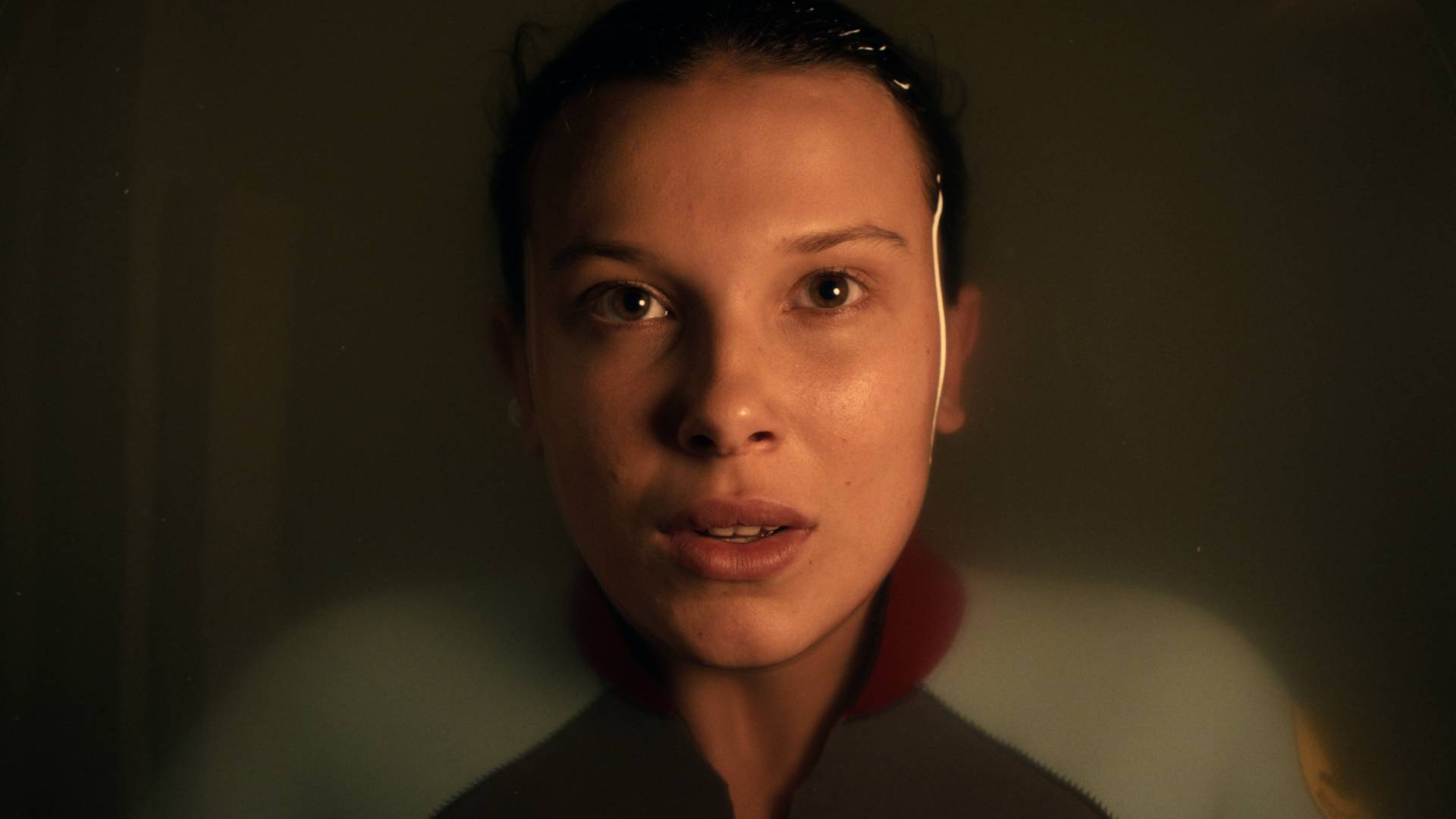Legendary PC games you completely forgot were on console
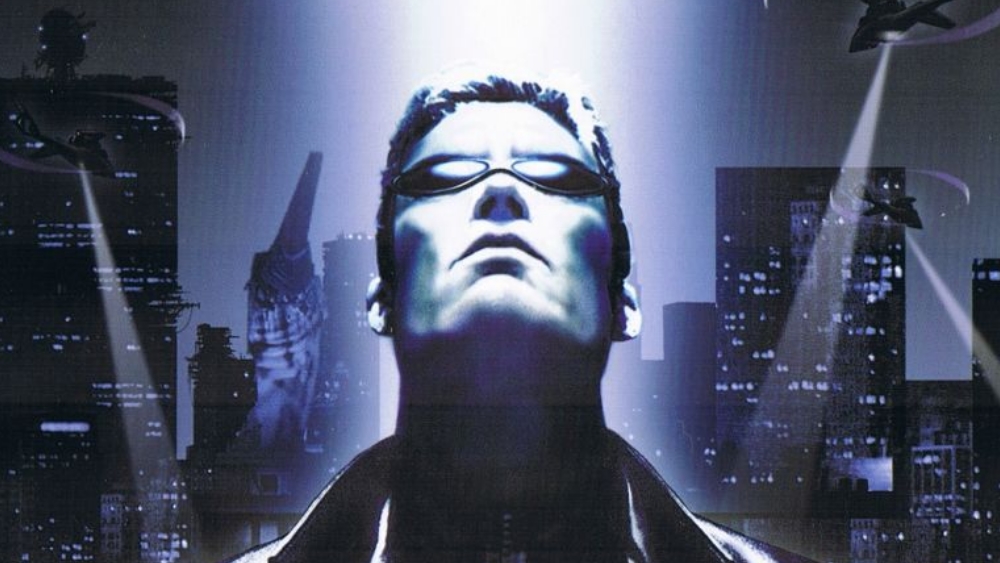
We don't typically talk about PC-centric titles here at GamesRadar+, leaving those to the extremely savvy folks at our sister site PC Gamer. That's why you won't often hear us discussing the timeless significance of PC exclusives like Deus Ex, Half-Life, and Civilization - only, those games aren't PC exclusives at all. Some of the most noteworthy standouts in PC gaming's history, which set new genre standards and still influence game design to this day, quietly snuck their way onto consoles at one time or another. But for a variety of reasons, their monumental impact on mouse-and-keyboard PC players just didn't translate for console owners and their controllers. The following games are all legendary touchstones of the PC platform, yet for better or worse, their console counterparts are barely remembered at all. Let's shine some light on these forsaken ports, and figure out what was so different from the critically important PC original.
Deus Ex: The Conspiracy (PS2 / 2000)
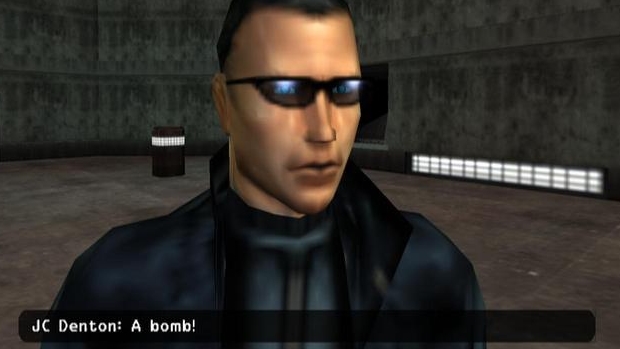
The legacy: Deus Ex became the blueprint for what an immersive sim could be, dropping players into a first-person thriller where they could do just about anything they wanted to the world around them. As the cybernetically enhanced secret agent JC Denton, you have the freedom to approach problems via a wide variety of stealthy or aggressive permutations, choosing to specialize in undetected sneakery, guns-blazing violence, or anything in between. The game just keeps going whether you talk to, kill, or ignore most any NPC walking the wide-open world, and your choices have consequences that can felt throughout the entire cyberpunk narrative.
What's different about the console version? Maybe it was the fact that it debuted two years after the 2000 original, or maybe people chafed at the addition of a way too on-the-nose subtitle, but Deus Ex didn't make much of a splash on PS2. Though they don't always seem to capture the intent of the original graphics, this port improved visual details like lighting, character models, and animations - but the upgrades were offset by a slightly slower pace, condensed level layouts, and a somewhat garish UI (here's a great graphical comparison between Deus Ex on PC and PS2). One aspect that's unquestionably better about this version are the pre-rendered intro and ending cutscenes; the PS2's ominous opening cinematic does a far better job of setting up our villains as string-pulling megalomaniacs, compared to the stiffly animated, low-res-textured models of the original game.
StarCraft 64 (N64 / 2000)
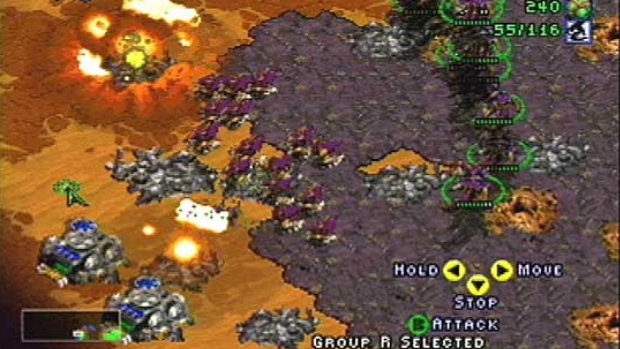
The legacy: Nearly 20 years after its debut, there are still people actively playing the original StarCraft as their primary profession. Blizzard's sci-fi RTS achieves immaculate balance between its three asymmetrical races, and there's no limit to just how high the skill ceiling goes, and how many intertwining strategies and builds one needs to consider if they want any hope of winning. The ubiquitous popularity of StarCraft and its Brood War expansion, particularly in South Korea, laid for the foundation for today's multimillion-dollar esports industry, where pro players are treated as athletes and worshipped for their lightning reflexes and tactical foresight.
What's different about the console version? No matter how you slice it, a console RTS can never match the comfort of a mouse and keyboard when issuing commands to your units. And in a game like StarCraft, where micromanaging your army via strenuous, heavily spammed key presses known as APM is crucial, an N64 controller can't even begin to compare. Between the awkward nature of controlling your units, and having to nudge the cursor around with the joystick, the breakneck speed of the PC version slows to an almost glacial pace. Space limitations meant that the voice-acted campaign dialogue got the axe, and the then-stunning cutscenes were removed and replaced by sad slideshows of static screencaps. Online multiplayer wasn't an option, of course - but you could 'enjoy' some truly eye-straining two-player splitscreen skirmishes (where you're effectively maphacking your human opponent the entire time).
Weekly digests, tales from the communities you love, and more
Half-Life (PS2 / 2001)
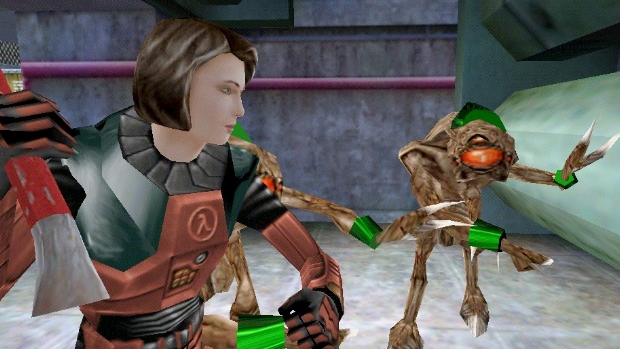
The legacy: Valve's debut game was a doozy: an FPS that revolutionized storytelling in shooters by going all-in on the sense of immersion. Players were meant to project themselves onto the unspeaking, unseen blank slate that is our hero Gordon Freeman, as he struggles and shoots his way through the remote Black Mesa testing facility after a failed experiment unleashes an alien invasion. Besides the sheer intensity of its shootouts and its seamless level designs, Half-Life is best known for doing away with control-revoking cutscenes, letting you view scripted story events however you like (or just stare at the ground the whole time, if you so choose).
What's different about the console version? Building off of a cancelled Dreamcast port, the PS2 version of Half-Life could actually contend as the superior version of the game (provided you don't mind using a controller and mild auto-aim). Character models got massive improvements, levels were extended, bugs were fixed, and the notorious first-person platforming controls were tweaked. There was even the addition of a console-exclusive, two-player co-op adventure called Half-Life: Decay (pictured above), starring two female scientists who don HEV suits and team up to blast every alien in sight.
Civilization (Super Nintendo / 1994)
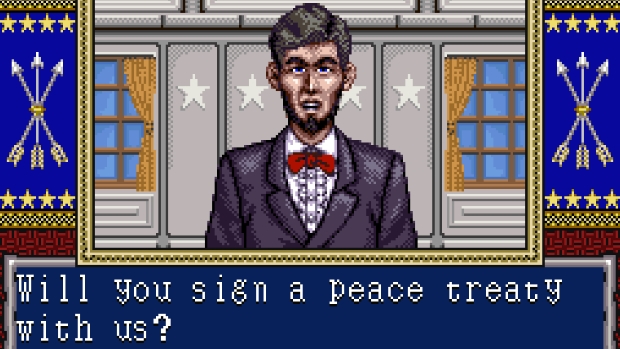
The legacy: Sid Meier's Civilization series is the household name of the 4X (eXplore, eXpand, eXploit, and eXterminate) subgenre of turn-based strategy games, and neither the genre nor the series itself have strayed far from the PC space. The 1991 original that started it all established all the basic principles of the beloved franchise: you guide a chosen culture from the Copper Age through to the Space Age, with the freedom to conquer territories, declare war, establish peace treaties with diplomacy, and establish Wonders of the World via collective knowledge as you see fit. Whether playing against AI bots or other players, Civilization is famous for inducing some severe 'just one more turn' syndrome in its armchair world leaders.
What's different about the console version? As with StarCraft 64, strategy games - whether real-time or turn-based - suffered from cramped interfaces on consoles, but the gameplay is largely the same. Interestingly, Civilization's SNES intro takes a surprisingly different tone: whereas the PC original shows the Earth slowly forming from debris in space into a mass of land, sea, and air, the Super Nintendo backstory involves a vision of a gigantic goddess cradling the planet in her palms, asking you to build the cities that will forge humanity's future. There's also redone portrait art for all the playable leaders, with backdrops befitting of their native region and time period.
Quake 3 Arena (Dreamcast / 2000)
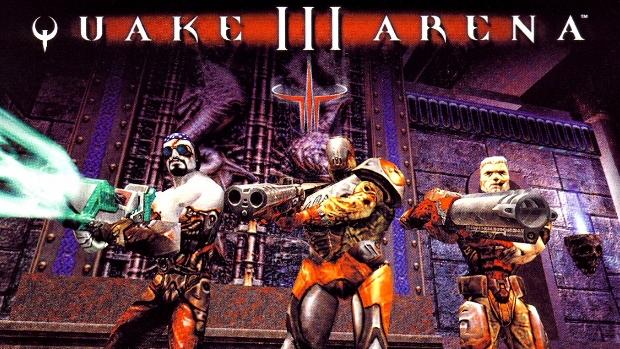
The legacy: The late '90s were the heyday of the blazing fast FPS deathmatch, with Quake 3 Arena and Unreal Tournament tapping into the human need for bloodthirsty killing sprees (speaking only for online competition, of course). Quake 3 in particular perfected its own brand of frenetic movement atop all the twitch shooting, where players had to master the art of rocket jumping and leaping around levels at ludicrous speeds to race for item and weapon spawns. After getting your bearings by playing against bots, venturing into Q3A's online crucible was like plunging headfirst into a fiery pit: either you forged yourself into a weapon of mass destruction, or you were toast.
What's different about the console version? Amazingly, this port gets pretty much everything about the original's core gameplay oh-so right - especially when you're rocking the Dreamcast's mouse and keyboard peripherals. The gameplay's furious pace is just as fast on consoles courtesy of the port's smooth performance, complete with splitscreen or online play that even went cross-platform (though lobbies had an intimate four-player cap). Despite Q3A's continual availability on PC, some dedicated Dreamcast devotees are still fragging each other online to this day on homebrewed SegaNet servers.
EverQuest Online Adventures (PS2 / 2003)
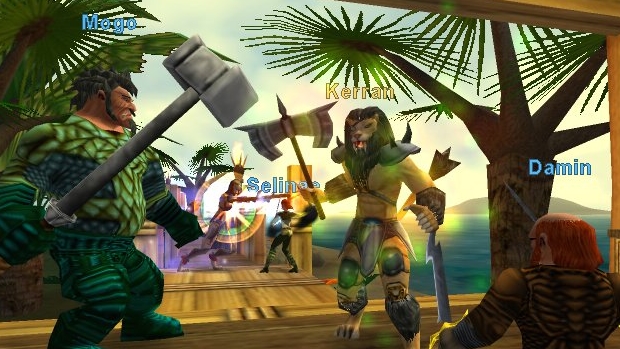
The legacy: Before World of Warcraft dominated the MMO scene, EverQuest was the massively multiplayer fantasy game to beat. Players who got hooked on its cooperative monster-slaying were really hooked, many of whom forged lifelong friendships with their guildmates and poured hundreds of hours into what colloquially became known as 'EverCrack'. The fact that servers are still live and expansions for the original game are still being released to this day is a testament to just how devout the hardcore EQ fans can be.
What's different about the console version? Phantasy Star Online beat EverQuest to the punch in terms of introducing console players to the wondrous world of MMOs, but EverQuest Online Adventures certainly outlived it, with official servers that miraculously ran from 2003 all the way to 2012. Rather than being a one-to-one port, this EverQuest took a smart approach by making its questing a prequel to the original EQ, set 500 years prior. Longtime fans could appreciate familiar zones and nestled bits of lore, and the Frontiers expansion released that same year added as much content you'd expect from any PC add-on.
Diablo (PS1 / 1998)
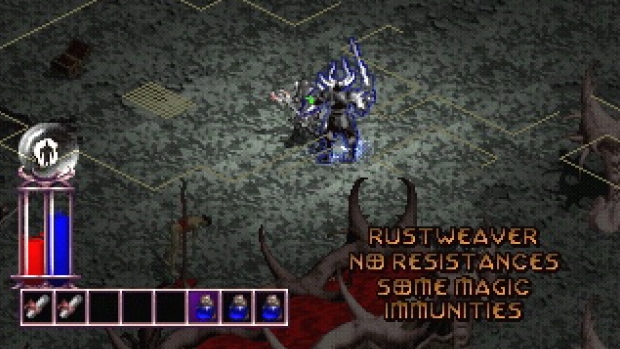
The legacy: The frenzied click-click-click combat, driving obsession with new loot, and endless replayability of the modern action RPG can all be traced back to Diablo. Hacking and slashing your way through isometric, randomly generated dungeons was a blast whether you were adventuring alone or with friends, and coming back up for some air and soaking up the calming music and foreboding atmosphere of Tristram gave your quest an engrossing sense of atmosphere. Diablo was also the proving ground for Blizzard's Battle.net service, which still powers the online connectivity of all Blizzard games to this day.
What's different about the console version? Fun fact: it was Electronic Arts that published Diablo on PS1. This version is plainly inferior to the original, due largely to the lack of online play (though two-player is possible), lengthy load times, and the fact that a save file took up two-thirds of the default PS1 memory card. It also had the interesting quirk of auto-aim for ranged attacks and abilities, which manifested as a shimmering sparkle that would seek out your enemies' feet whenever a target was within range.
SimCity (Super Nintendo / 1991)
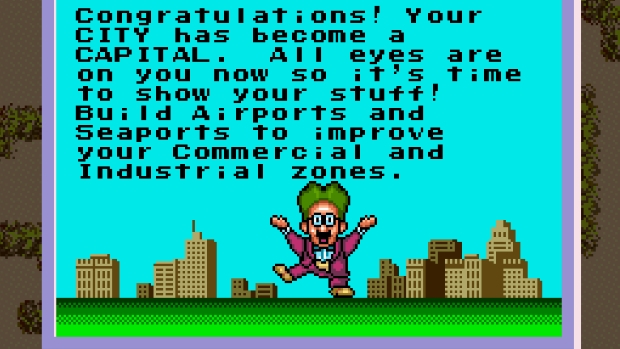
The legacy: Playing God...er, mayor of your own personal city, making the infrastructure decisions that directly influence your citizen's lives, somehow turns a mundane job into a rousing power trip. Will Wright's famed series set the standard for city-building games, letting players micromanage all the little details of taxation, utilities, and transportation, or just enjoy the calming creativity of starting up a bustling city from scratch. There's also the occasional bit of franticness as you try to do damage control whenever a natural disaster wreaks havoc on all your plans.
What's different about the console version? Nintendo took Maxis' SimCity and completely made it its own. The visuals and soundtrack ooze Nintendo's trademark charm, and the addition of a mustachioed, green-haired adviser named Dr. Wright (styled after series creator Will Wright) was the perfect way to ease newcomers into the complex procedures of city management. Also, because it's Nintendo, they added in a scenario in which Tokyo is under siege by a gigantic Bowser. You won't find that in any unmodded PC version.
Lemmings (NES / 1992)
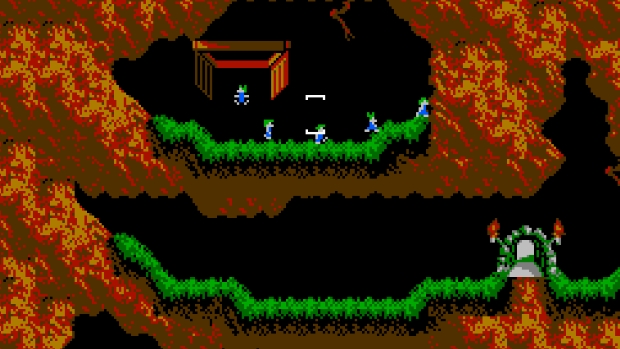
The legacy: Anyone who grew up with a computer in their home knows Lemmings, the easy-to-learn, hard-to-master puzzle game in which you guide cute little humanoids towards out-of-reach goals. The need to assign tasks to individual Lemmings as they mindlessly march around in real time created a real sense of urgency throughout the 120+ levels, yet the layouts required careful thought, reflection, and spatial reasoning if you wanted to minimize Lemming casualties, let alone solve the path to victory.
What's different about the console version? Lemmings has been ported all over the place, and the Super Nintendo version is probably the best known console port - so it's bizarre to see the same basic framework portrayed with 8-bit graphics rather than 16-bit. The chunkier sprite grid of the NES version severely limited the angles which certain Lemming types could dig or build. Still, despite the washed-out color palette and music that's a bit harsher on the ears, this version of Lemmings has all the essentials: clever, visually interesting level designs and a hectic pace for all the puzzling.
Daikatana (Game Boy Color / 2000)
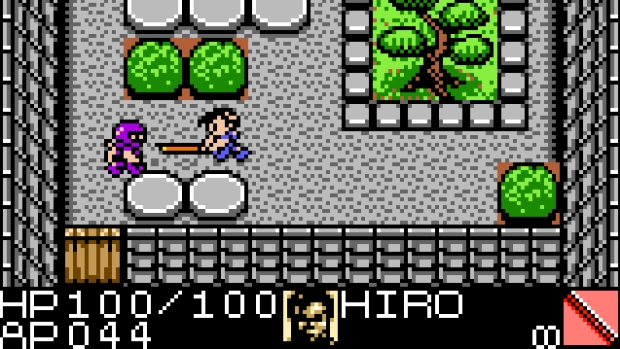
The legacy: Let's close things out with something a little different: a title that's infamous as an early example of how not to hype up your game, which somehow found redemption in a handheld port. Daikatana banked everything on the name recognition of its director John Romero, who had previously had a string of FPS hits with Wolfenstein 3D, Doom, and Quake, but was about to end that winning streak with a ho-hum shooter that under-delivered on its lofty promises after multiple delays and millions of dollars spent in development. It's not as godawful as you've probably heard, but it's nowhere near as fun as it was cracked up to be courtesy of spotty difficulty spikes and AI companions who seem like they're actively trying to die at all times.
What's different about the handheld version? Daikatana got an N64 port that didn't fare any better than the PC version, but the Game Boy Color adaptation is something else entirely. This adventure takes the same three protagonists and time-traveling plot lines as the original Daikatana, then fashions them into a far better game styled as a top-down action RPG in the vein of Link's Awakening and Crystalis. Publisher Kemco nixed a US release after the damage that had been done to the Daikatana brand name, but the PAL version was like a little GBC gem for those who bothered to give it a chance.

Lucas Sullivan is the former US Managing Editor of GamesRadar+. Lucas spent seven years working for GR, starting as an Associate Editor in 2012 before climbing the ranks. He left us in 2019 to pursue a career path on the other side of the fence, joining 2K Games as a Global Content Manager. Lucas doesn't get to write about games like Borderlands and Mafia anymore, but he does get to help make and market them.


